
Since the beginning of Russia’s full-scale invasion of Ukraine in February 2022, Türkiye has made significant efforts to maintain its stance that protects the stability in the Wider Black Sea Region and Türkiye’s security. This has meant joining the West in the condemnation of Russia for the invasion and defense cooperation with Ukraine, but also refusing to join Western sanctions against Russia and maintaining regular economic ties with the said the country. Despite this, Turkish officials and public are keenly aware of the fact that Ukraine has been caught in the middle of a ruthless power competition between the West and Russia and that the country is fighting for its survival as a result.
Türkiye’s policy of walking the middle path in terms of this conflict has drawn criticisms from Western circles who view the Ukraine-Russia war as an unmissable chance to humiliate and cripple Russia in the international arena. Achieving this objective requires pursuing a brutal war of attrition that could last for years to come, and more than a million people in Ukraine and Russia have already died since February 2022.[1] Knowing political history allows us to assume that, in the hopes of definitively defeating Russia, these pro-war Western circles do not in any way care that Ukrainians are suffering, so long as Russians suffer as well.[2]
More balanced evaluations on this topic have recognized that Türkiye has established itself as one of the few reliable actors that can serve as a point of contact between the West, Ukraine, and Russia at the same time. Türkiye has made it clear that it wants this war “contained, de-escalated, and ended sooner rather than later.”[3]
This is more important now than ever as Western countries are supplying increasingly advanced weapon systems to Ukraine and giving their consent to the use of these systems against targets deep inside Russia. Ukraine has become so emboldened by this support that it has made an incursion into Russia’s Kursk region to disrupt Russia’s invasion efforts[4] and probably to strengthen its hand at the negotiation table. Russia, meanwhile, “has drawn a new red line, threatening the West with war [if Ukraine is given] more leeway to use Western long-range missiles to strike inside Russia.”[5] Russia’s “red lines” rhetoric is being continuously challenged by Western commentators, who argue that Russia has a habit of bluffing and can be forced into accepting an outcome that favors the West’s geopolitical goals.[6] This has been echoed even by NATO’s outgoing Secretary General Jens Stoltenberg, who argued that Russia is aware that NATO is the world’s strongest military alliance and Russia cannot risk engaging in direct war with the West’s military alliance. Russia replied by indicating that Stoltenberg’s assessment of the situation was “completely short-sighted and unprofessional” and such calls to push Russia into a corner are "extremely provocative and dangerous."[7]
So, is it wise to attempt to push a major power armed to the teeth with the highest-level military equipment to a corner? Can we be absolutely sure how Russia will react in such a scenario? As succinctly put in one commentary; “We [the West] are likely to discover that we have gone too far only after we find ourselves in a direct confrontation with Russia, not before.”[8]
Ultimately, what the West thinks about the Ukraine-Russia war does not matter that much, because they have no personal stake in this war. The only thing that matters is what Ukraine, the defender fighting for its existence and the right to choose its foreign policy direction, and Russia, the attacker who is fearful of Ukraine being used for Western encirclement, think. In this dangerous scenario, Türkiye has made an earnest effort to find a formula that can satisfy both Ukraine and Russia and bring an end to the war. So far, to ease tensions between the West and Russia and deescalate the confrontation between Ukraine and Russia, Türkiye has taken the following steps:
1) In March 2022, Türkiye organized a tripartite meeting with Ukraine and Russia at the level foreign ministers (the first of its kind in the war) in Antalya, which was followed by a meeting of delegations in İstanbul. Although a positive momentum was reportedly gained in the negotiations, the meetings produced no concrete results. There are persistent rumors that the interference from Ukraine’s Western backers derailed the negotiations.[9]
2) In July 2022, with the mediation of the United Nations and Türkiye that brought Ukraine and Russia to table, the Black Sea Grain Initiative (“Grain Deal”) was put into motion (lasting until July 2023),[10] allowing the safe passage of Ukrainian grain and food-related commodities and pushing back soaring food prices.
3) In September 2022, Ukraine and Russia were able to make a prisoners of war exchange (the largest since Russia’s invasion began) through the mediation of Saudi Arabia and Türkiye.[11]
4) In July-August 2024, through complicated multi-lateral negotiations in which Türkiye played a key role, a major prisoner swap took place in Türkiye between Western countries and Russia,[12] providing a much-needed easing of tensions between the two sides.
5) In the backdrop of the ongoing war in Ukraine, Türkiye continues to diligently enforce the provisions of the 1936 Montreux Convention, thereby controlling the flow of military ships in and out of the Black Sea through the Turkish straits. Türkiye thus acts as a safety valve against escalation that can directly pit the West against Russia in the Black Sea.[13]
6) In June 2024, Türkiye attended the Ukraine Peace Summit in Switzerland despite its reservations about the fact that Russia, one of the two sides of the war, was not invited to the event.[14] The summit has been considered a failure[15] and was mired in controversy because one of the invitees, Patriarch Bartholomew (head of the Fener Greek Patriarchate of İstanbul), used the title of “Ecumenical Patriarch”. This was in clear violation of the compromise reached during the adoption of the 1923 Treaty of Lausanne that the Patriarchate has jurisdiction solely as a Turkish public institution.[16]
7) Türkiye has repeatedly indicated that it is willing to bring together Ukrainian and Russian officials again to bring an end to the Ukraine-Russia war through addressing the concerns and interests of both Ukraine and Russia.[17] This offer is being resisted by both certain circles in the West, who probably do not want Türkiye to acquire the diplomatic prestige such a move would bring, and by Russia, who probably considers Türkiye to have become too close to Ukraine for Russia’s liking.
Despite the 2.5 years that have passed since Russia’s invasion and the death of more than 1 million people, the Ukraine-Russia war seems to be going nowhere and only promises more misery for Ukraine and the region. The West is intent on achieving total victory against Russia to put Russia “back in its place”, Russia is trying to dominate Ukraine to feel secure in its region, and Ukraine is fighting for its survival and to guarantee its future. It is a situation that can quickly spiral out of control and lead to severe consequences. It for this reason that the Ukraine-Russia War requires actors like Türkiye that can talk to all the sides involved and can thus serve as exit points for the conflict. The recent appointment of Andrii Sybiha, Ukraine’s former ambassador to Ankara with whom AVİM has co-organized events in the past, as Ukraine’s Minister of Foreign Affairs[18] provides an important opportunity in this regard. We hope that Mr. Sybiha’s appointment will bring fresh perspectives to Ukraine’s foreign policy that will pave the way towards an end to the destructive Ukraine-Russia war.
[1] Brendan Cole, “Russia-Ukraine War Passes Grim Milestone”, Newsweek, September 17, 2024, https://www.newsweek.com/russia-ukraine-wsj-deaths-1955023
[2] This comment was inspired by the critical analysis of Henry Kissinger’s legacy for American foreign policy making in the following article: Nathan J. Robinson, “The Worst Magazine in America”, Current Affairs, September 13, 2024, https://www.currentaffairs.org/news/the-worst-magazine-in-america
[3] Rich Outzen, “Turkey wants to end the war in Ukraine—and might have a formula to do it”, Atlantic Council, August 28, 2024, https://www.atlanticcouncil.org/blogs/turkeysource/turkey-wants-to-end-the-war-in-ukraine-and-might-have-a-formula-to-do-it/
[4] Elena Teslova, “Ukrainian president says goal of Kursk incursion 'establishment of buffer zone'”, Anadolu Agency, August 20, 2024, https://www.aa.com.tr/en/russia-ukraine-war/ukrainian-president-says-goal-of-kursk-incursion-establishment-of-buffer-zone/3307552 ; “Ukraine failed to slow Russia’s Donbas advance with Kursk incursion: Putin”, Al Jazeera, September 5, 2024, https://www.aljazeera.com/news/2024/9/5/ukraine-failed-to-slow-russias-donbas-advance-with-kursk-incursion-putin ; “Ukraine invites UN and Red Cross to Russia’s Kursk region”, Al Jazeera, September 16, 2024, https://www.aljazeera.com/news/2024/9/16/ukraine-invites-un-and-red-cross-to-kyiv-controlled-kursk
[5] Tom Porter, “Putin is threatening disaster over Ukraine's long-range missiles — but his past 'red lines' came to nothing,” Business Insider, September 13, 2024, https://www.businessinsider.com/putins-threatening-the-west-with-war-its-not-the-first-time-2024-9
[6] Porter, “Putin is threatening disaster over Ukraine's long-range missiles — but his past 'red lines'” ; Nigel Gould-Davies, “Putin Has No Red Lines”, The New York Times, January 1, 2023, https://www.nytimes.com/2023/01/01/opinion/putin-russia-ukraine-war-strategy.html
[7] “Kremlin calls Stoltenberg's comments on missile strikes on Russia 'dangerous'”, Reuters, September 18, 2024, https://www.reuters.com/world/europe/kremlin-calls-stoltenbergs-comments-missile-strikes-russia-dangerous-2024-09-18/
[8] George Beebe and Suzanne Loftus, “Testing Russia’s red lines could become a fatal experiment”, Responsible Statecraft, June 12, 2023, https://responsiblestatecraft.org/2023/06/12/testing-russias-red-lines-could-become-a-fatal-experiment/ ; referenced by Porter, “Putin is threatening disaster over Ukraine's long-range missiles — but his past 'red lines'”.
[9] “Putin, Erdoğan'ın katıldığı ŞİÖ Plus'ta konuştu: İstanbul'daki 'Ukrayna mutabakatları' hala masada”, Sputnik, 4 Temmuz 2024, https://anlatilaninotesi.com.tr/20240704/putin-erdoganin-katildigi-sio-plusta-konustu-istanbuldaki-ukrayna-mutabakatlari-hala-masada-1085523333.html
[10] “Beacon on the Black Sea”, United Nations - Black Sea Grain Initiative Joint Coordination Centre, accessed September 20, 2024 ; “What is the Black Sea Initiative? | The UN Explained”, United Nations, September 20, 2024, https://www.un.org/en/video/what-black-sea-initiative-un-explained
[11] Valentyn Ogirenko and Aziz El Yaakoubi, “Russia, Ukraine announce major surprise prisoner swap”, Al Jazeera, September 22, 2022, https://www.reuters.com/world/europe/russia-releases-10-foreigners-captured-ukraine-after-saudi-mediation-riyadh-2022-09-21/
[12] Rich Outzen, “Turkey’s linchpin role in the Russia prisoner swap offers a lesson”,
[13] Teoman Ertuğrul Tulun, “Integrating NATO’s Cybersecurity And Maritime Strategy: Upholding The Montreux Convention”, Center for Eurasian Studies (AVİM), Analysis No: 2024/12, August 6, 2024, https://avim.org.tr/en/Analiz/INTEGRATING-NATO-S-CYBERSECURITY-AND-MARITIME-STRATEGY-UPHOLDING-THE-MONTREUX-CONVENTION
[14] Beyza Binnur Donmez, “Ukraine peace summit would be 'more result-oriented' with Russia's participation: Turkish foreign minister”, Anadolu Agency, June 15, 2024 https://www.aa.com.tr/en/europe/ukraine-peace-summit-would-be-more-result-oriented-with-russias-participation-turkish-foreign-minister/3251122 ; “Russia, China absent as world leaders meet for Ukraine peace conference”, Al Jazeera, June 15, 2024, https://www.aljazeera.com/news/2024/6/15/world-leaders-meet-in-switzerland-as-ukraine-seeks-aid-amid-war-with-russia
[15] Leonid Ragozin, “Why did the Ukraine Peace Summit fail?”, Al Jazeera, June 23, 2024, https://www.aljazeera.com/opinions/2024/6/23/why-did-the-ukraine-peace-summit-fail
[16] Eastern Orthodoxy and the Fener Greek Patriarchate have increasingly become foreign policy tools for the West in the Ukraine-Russia war, creating rifts in Eastern Orthodoxy for the sake of politics. The curtailment of religious activities, something that normally draws quick condemnation from Western actors, are being met with silence or muted responses. For example, in the name of securing its national interests, Ukraine has decided to ban the activities of the Ukrainian Orthodox Church that is tied to the Russian Orthodox Church (Moscow Patriarchate). This move, however, has received no real criticisms from Ukraine Western supporters. For additional information, please see: “Ekümenik Patrik'in ismi Ukrayna Barış Bildirisi'nden çıkarıldı”, Agos, 27 Haziran 2024, https://www.agos.com.tr/tr/yazi/30544/ekumenik-patrik-in-ismi-ukrayna-baris-bildirisi-nden-cikarildi ; Gözde Kılıç Yaşın, “Designing The Geography Of Religion In The New World Order: Divisions In Orthodoxy”, Center for Eurasian Studies (AVİM), Analysis No: 2022/15, June 10, 2022, https://avim.org.tr/en/Analiz/DESIGNING-THE-GEOGRAPHY-OF-RELIGION-IN-THE-NEW-WORLD-ORDER-DIVISIONS-IN-ORTHODOXY ; Gözde Kılıç Yaşın, “The Legal Status Of The Fener Greek Patriarchate”, Analysis No: 2022/12, October 19, 2022, https://avim.org.tr/en/Analiz/THE-LEGAL-STATUS-OF-THE-FENER-GREEK-PATRIARCHATE ; Martin Fornusek, “Ukraine's parliament adopts bill potentially banning Moscow-linked church”, the Kyiv Independent, August 20, 2024, https://kyivindependent.com/ukraines-parliament-passes-bill-potentially-baning-moscow-linked-church/
[17] “Türkiye ready to hold Russia-Ukraine peace summit: Erdoğan”, Daily Sabah, March 8, 2024, https://www.dailysabah.com/politics/diplomacy/turkiye-ready-to-hold-russia-ukraine-peace-summit-erdogan ; “Turkey's Erdogan offers to help end Russia-Ukraine war; Kremlin rules him out as intermediary”, Reuters, July 4, 2024, https://www.reuters.com/world/turkeys-erdogan-offers-help-end-russia-ukraine-war-kremlin-rules-him-out-2024-07-03/
[18] “Andrii Sybiha becomes Ukraine’s top diplomat amid major cabinet reshuffle”, Al Jazeera, September 5, 2024, https://www.aljazeera.com/news/2024/9/5/andrii-sybiha-becomes-ukraines-top-diplomat-amid-major-cabinet-reshuffle
© 2009-2025 Center for Eurasian Studies (AVİM) All Rights Reserved
No comments yet.
-
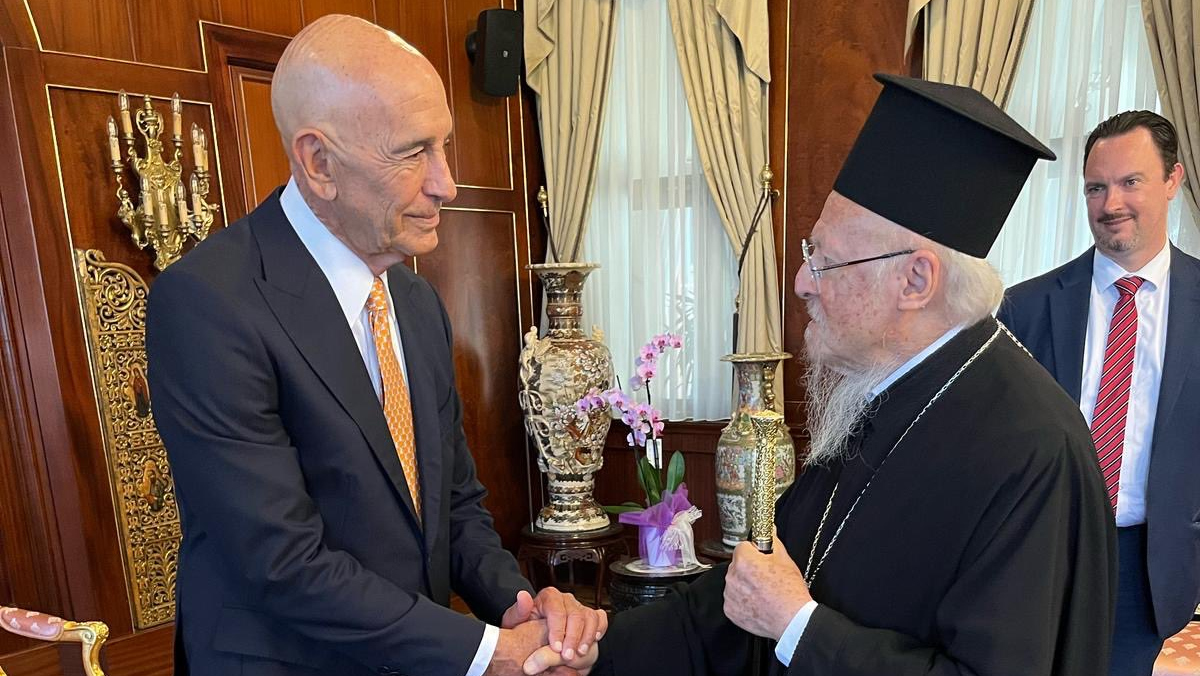 THE HARMFUL EFFECTS OF THE POLITICIZATION OF THE FENER GREEK PATRIARCHATE
THE HARMFUL EFFECTS OF THE POLITICIZATION OF THE FENER GREEK PATRIARCHATE
Mehmet Oğuzhan TULUN 03.09.2025 -
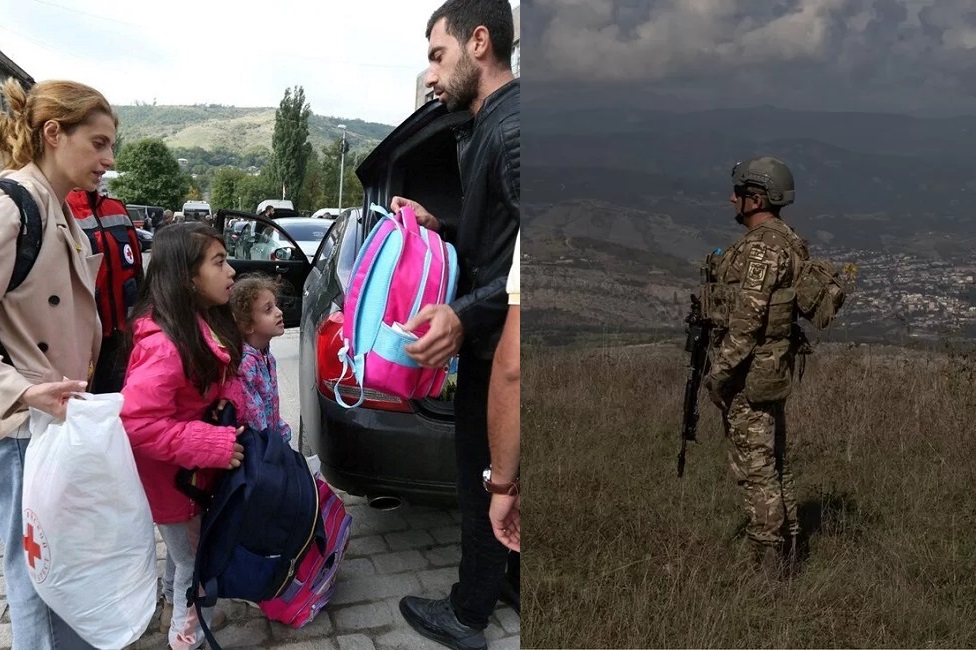 THE BATTLE TO CONTROL THE NARRATIVE OVER KARABAKH: ARMENIAN CIVILIAN SAFETY VS. AZERBAIJANI STATE SOVEREIGNTY
THE BATTLE TO CONTROL THE NARRATIVE OVER KARABAKH: ARMENIAN CIVILIAN SAFETY VS. AZERBAIJANI STATE SOVEREIGNTY
Mehmet Oğuzhan TULUN 06.10.2023 -
 THE EVENTS OF 1915 AND THE WORD “DEPORTATION”
THE EVENTS OF 1915 AND THE WORD “DEPORTATION”
Mehmet Oğuzhan TULUN 08.02.2015 -
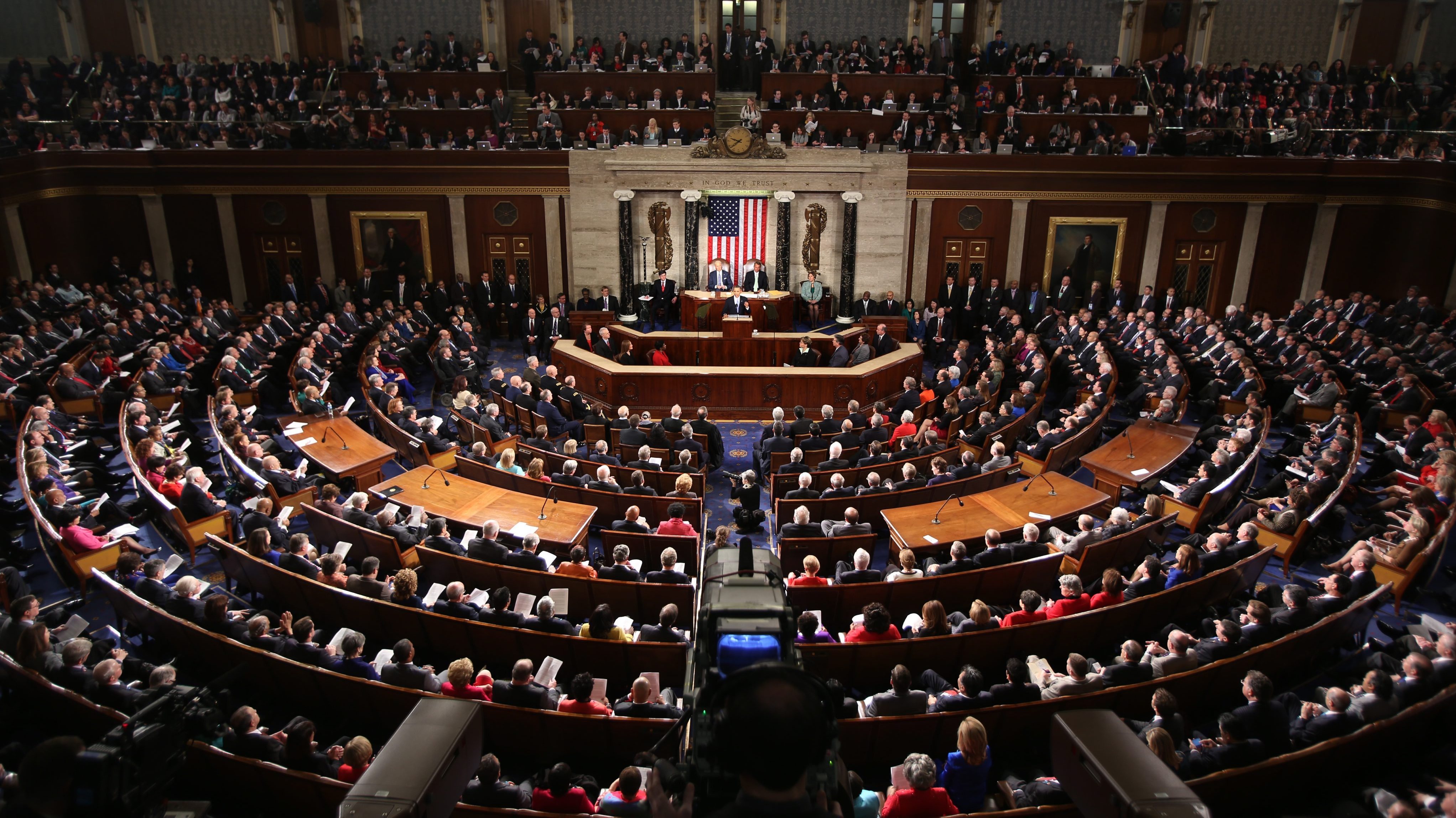 GENOCIDE ACCUSATION AS A FORM OF PUNISHMENT - II
GENOCIDE ACCUSATION AS A FORM OF PUNISHMENT - II
Mehmet Oğuzhan TULUN 04.11.2019 -
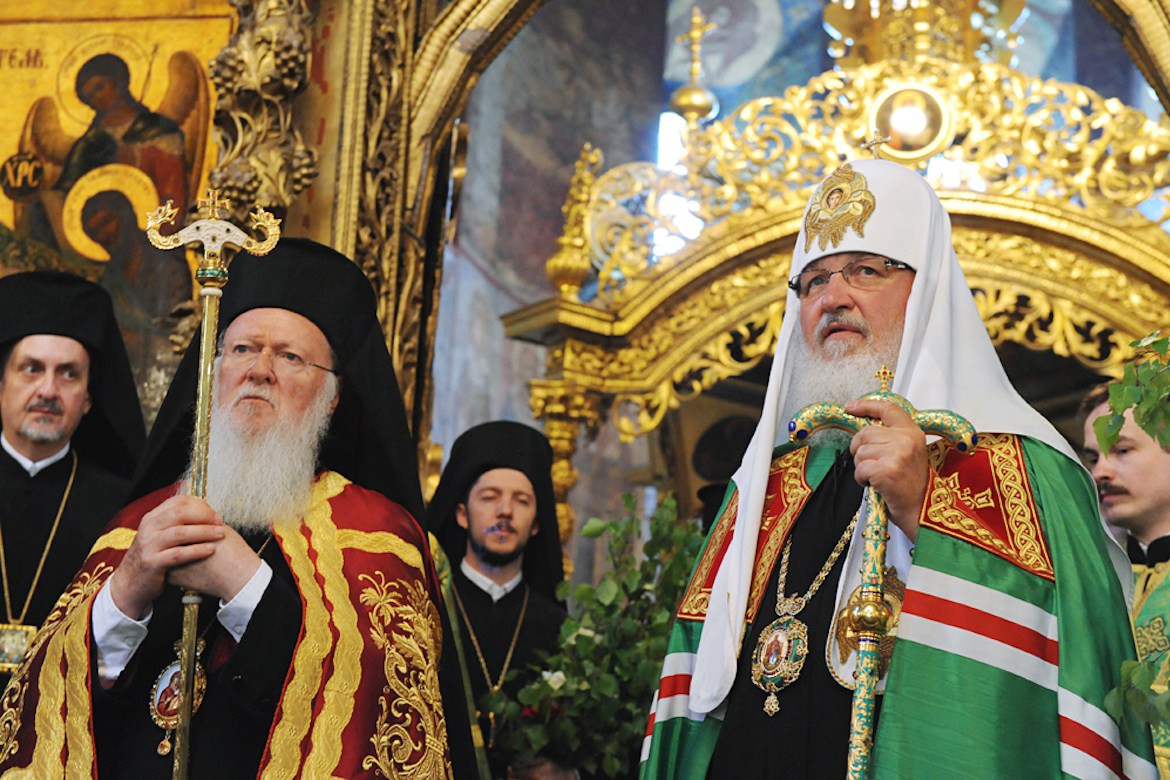 IS ECUMENISM BEING DISRUPTED IN THE CHRISTIAN WORLD?
IS ECUMENISM BEING DISRUPTED IN THE CHRISTIAN WORLD?
Mehmet Oğuzhan TULUN 24.09.2018
-
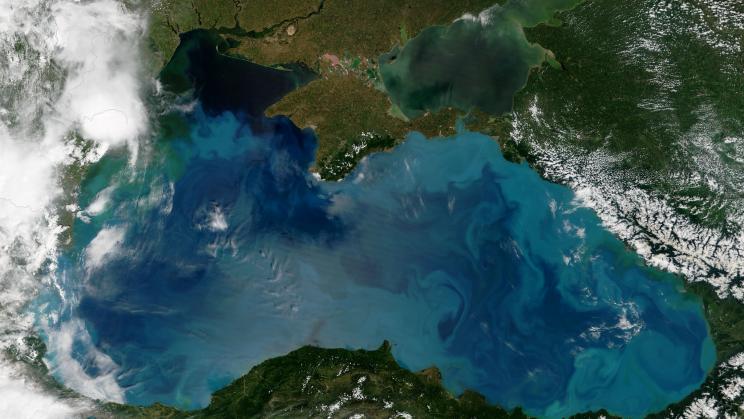 RISKS AND OPPORTUNITIES REGARDING THE BLACK SEA SAFETY
RISKS AND OPPORTUNITIES REGARDING THE BLACK SEA SAFETY
Gözde KILIÇ YAŞIN 30.06.2022 -
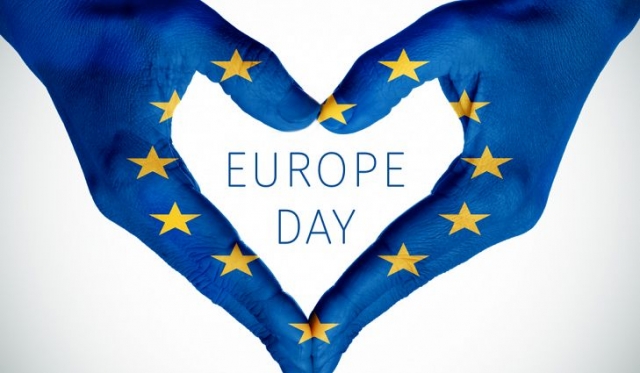 EUROPE DAY CELEBRATIONS - EU SYMBOLS AND TURKEY
EUROPE DAY CELEBRATIONS - EU SYMBOLS AND TURKEY
Teoman Ertuğrul TULUN 17.05.2019 -
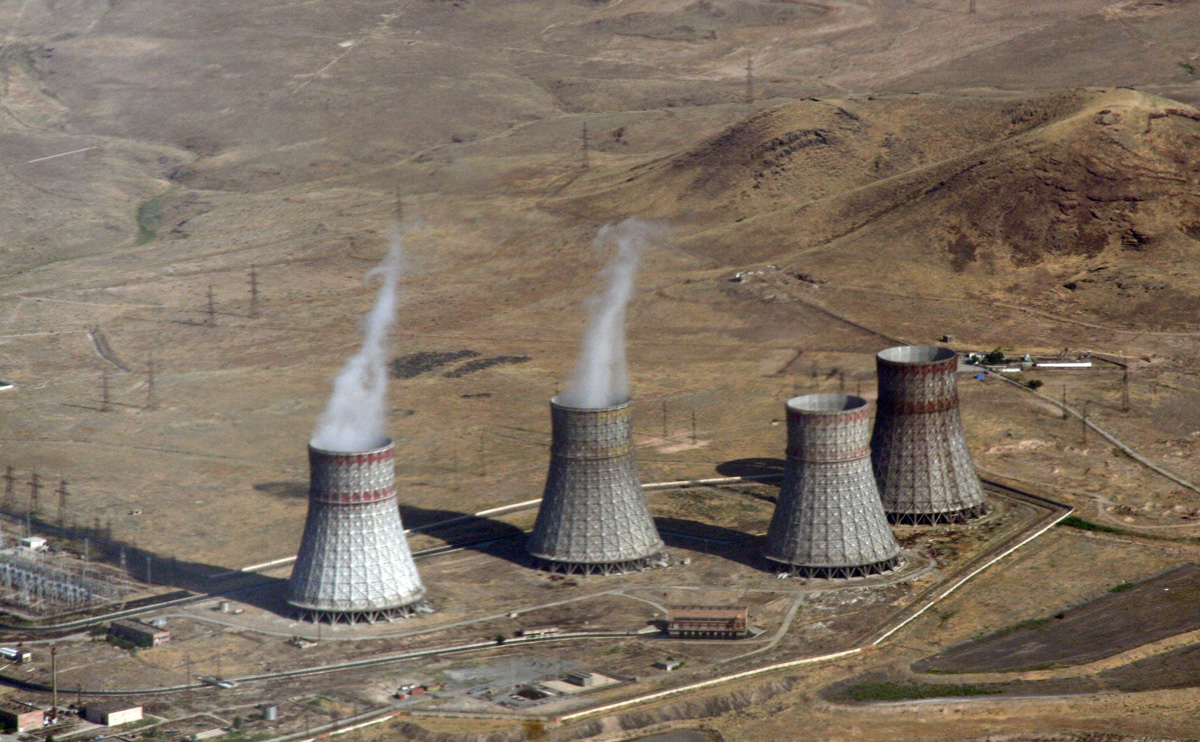 NUCLEAR THREAT IN THE SOUTH CAUCASUS; METSAMOR TO CONTINUE OPERATING
NUCLEAR THREAT IN THE SOUTH CAUCASUS; METSAMOR TO CONTINUE OPERATING
Özge Nur ÖĞÜTCÜ 20.10.2016 -
D.L. PHILLIPS’S DIPLOMATIC HISTORY OF THE TURKEY-ARMENIA PROTOCOLS 2
Ömer Engin LÜTEM 28.03.2013 -
 THE RISING STRATEGIC IMPORTANCE OF TÜRKIYE'S MIDDLE CORRIDOR IN EURASIA AMID THE UKRAINE CONFLICT
THE RISING STRATEGIC IMPORTANCE OF TÜRKIYE'S MIDDLE CORRIDOR IN EURASIA AMID THE UKRAINE CONFLICT
Teoman Ertuğrul TULUN 29.05.2024
-
25.01.2016
THE ARMENIAN QUESTION - BASIC KNOWLEDGE AND DOCUMENTATION -
12.06.2024
THE TRUTH WILL OUT -
27.03.2023
RADİKAL ERMENİ UNSURLARCA GERÇEKLEŞTİRİLEN MEZALİMLER VE VANDALİZM -
17.03.2023
PATRIOTISM PERVERTED -
23.02.2023
MEN ARE LIKE THAT -
03.02.2023
BAKÜ-TİFLİS-CEYHAN BORU HATTININ YAŞANAN TARİHİ -
16.12.2022
INTERNATIONAL SCHOLARS ON THE EVENTS OF 1915 -
07.12.2022
FAKE PHOTOS AND THE ARMENIAN PROPAGANDA -
07.12.2022
ERMENİ PROPAGANDASI VE SAHTE RESİMLER -
01.01.2022
A Letter From Japan - Strategically Mum: The Silence of the Armenians -
01.01.2022
Japonya'dan Bir Mektup - Stratejik Suskunluk: Ermenilerin Sessizliği -
03.06.2020
Anastas Mikoyan: Confessions of an Armenian Bolshevik -
08.04.2020
Sovyet Sonrası Ukrayna’da Devlet, Toplum ve Siyaset - Değişen Dinamikler, Dönüşen Kimlikler -
12.06.2018
Ermeni Sorunuyla İlgili İngiliz Belgeleri (1912-1923) - British Documents on Armenian Question (1912-1923) -
02.12.2016
Turkish-Russian Academics: A Historical Study on the Caucasus -
01.07.2016
Gürcistan'daki Müslüman Topluluklar: Azınlık Hakları, Kimlik, Siyaset -
10.03.2016
Armenian Diaspora: Diaspora, State and the Imagination of the Republic of Armenia -
24.01.2016
ERMENİ SORUNU - TEMEL BİLGİ VE BELGELER (2. BASKI)
-
AVİM Conference Hall 24.01.2023
CONFERENCE TITLED “HUNGARY’S PERSPECTIVES ON THE TURKIC WORLD"









